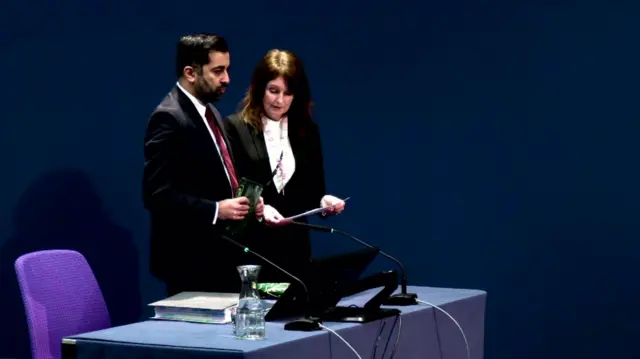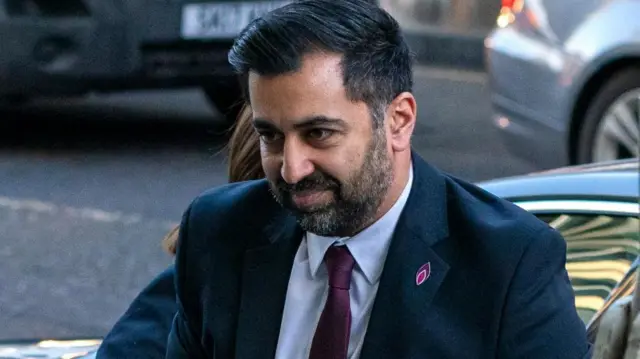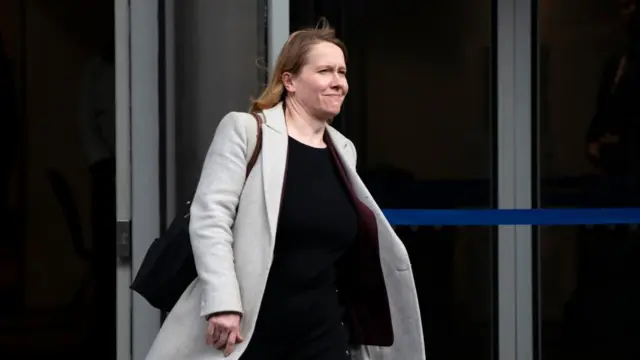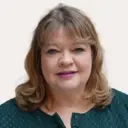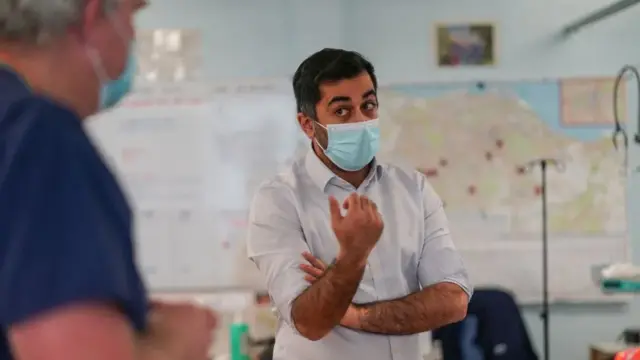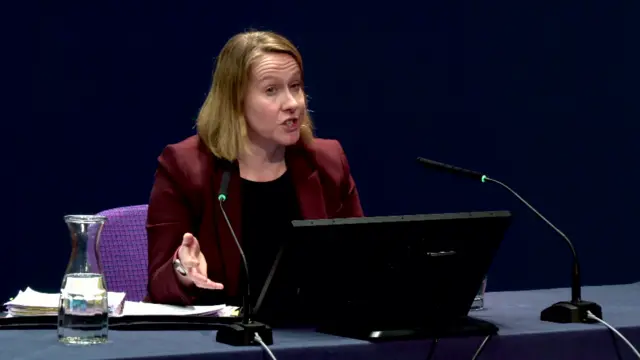Sturgeon did not 'cascade' decisions to cabinet - Yousafpublished at 14:03 GMT 25 January 2024
Humza Yousaf tells the inquiry that Nicola Sturgeon made decisions during the pandemic which were not "cascaded" to the rest of the cabinet.
He says Sturgeon and the "gold command" of top advisers were making decisions in a fast-paced environment and these were not always shared with other ministers.
He adds that this presented challenges when ministers had to explain the rationale behind the decisions.
Yousaf emphasises that this was a "rare" occurrence and most decisions were made by the cabinet, he adds.
